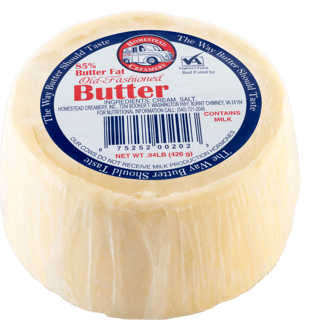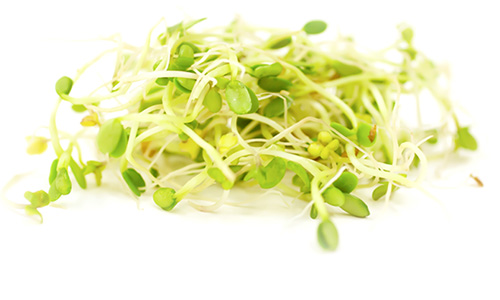The FDA announced on its website that Homestead Creamery Inc of Wirtz, VA, recalled unsalted butter because of the potential contamination of Listeria monocytogenes. The recalled butter was distributed to our distribution partners, through our home delivery service, and our retail store. The unsalted butter affected comes in ½ pound marked with an expiration date of 04/30 stickered on the plastic packaging. No illnesses have been reported to date in connection with this issue. The potential for contamination was noted after routine testing by Homestead Creamery and revealed the presence of Listeria monocytogenes in our unsalted butter. The production of the product has been suspended. The Virginia Department of Agriculture and Consumer Services continues to investigate the source of the issue. @ https://www.fda.gov/safety/recalls-market-withdrawals-safety-alerts/homestead-creamery-recall-unsalted-butter-because-possible-health-risk
ruth
Homestead Creamery Inc of Wirtz, VA, is recalling our unsalted butter because of the potential contamination of Listeria monocytogenes, an organism which can cause serious and sometimes fatal infections in young children, frail, or elderly people, and others with weakened immune systems.
ruth
As of April 22, 2020, CDC, public health, and regulatory officials in several states, and the FDA concluded their investigation of a multistate outbreak of E. coli O103 infections linked to clover sprouts. Fifty-one people infected with the outbreak strain of E. coli O103 were reported from 10 states (Idaho, Utah, Wyoming, Texas, Iowa, Missouri, Illinois, Florida, Virginia, and New York). Three people were hospitalized. No deaths were reported. Epidemiological and traceback data indicated that clover sprouts were the source of this outbreak. The FDA identified the outbreak strain of E. coli O103 in samples of Chicago Indoor Garden products that contain sprouts. On March 16, 2020, Chicago Indoor Garden recalled all products containing red clover sprouts from the market. Jimmy John’s LLC reported that all of its restaurants stopped serving clover sprouts on February 24, 2020. 63% of the people interviewed reported eating sprouts at Jimmy John’s restaurant. The FDA showed that a common seed lot was used to grow both the sprouts recalled by Chicago Indoor Garden and sprouts that were served at some Jimmy John’s locations. @ https://www.cdc.gov/ecoli/2020/o103h2-02-20/index.html
Investigation Notice: A multistate outbreak of E. coli Infections Linked to Clover Sprouts
ruth
A rash of coronavirus outbreaks at dozens of meatpacking plants across the nation is far more extensive than previously thought, according to an independent review of cases by USA TODAY. Operators in processing plants may have to choose between worker health or meat in stores. More than 150 of America’s largest meat processing plants operate in counties where the rate of coronavirus infection is already among the nation’s highest. But rather than increase safety and oversight, the USDA relaxed it. The agency allowed 15 poultry plants to exceed federal limits on how many birds workers can process in a minute. Coronavirus infections had spread in at least 48 U.S. meatpacking plants, sickening more than 2,200 people and killing 17, USA TODAY found. The outbreaks also have prompted the closure of at least 17 facilities. This month beef production is down 19% from last year. Despite the potential for meatpacking plants to become hotbeds of infection due to the close quarters in which employees work, some plants declined to close the facilities due to their importance to the food supply. @ https://www.usatoday.com/in-depth/news/investigations/2020/04/22/meat-packing-plants-covid-may-force-choice-worker-health-food/2995232001/
Coronavirus closed Smithfield and JBS meatpacking plants. Many more are at risk. Operators may have to choose between worker health or meat in stores.
ruth
A multi-country outbreak that affected 53 people and caused ten deaths between 2015 and 2018 in Austria, Australia, Denmark, Finland, Sweden, and the United Kingdom trigger an investigation by the European Food Safety Authority (EFSA). Greenyard’s frozen vegetable factory in Baju, Hungary, was the source of the Listeria outbreak. The study found that the main factors affecting contamination and growth of Listeria monocytogenes during processing are hygiene of the raw materials and process water; hygienic conditions of the food processing environment; and the time and temperature combinations used for storage and processing such as blanching and cooling. Investigations in the Greenyard outbreak showed that some frozen items could be defrosted and used in salads or as ingredients in other ready‐to‐eat (RTE) products sold to consumers without undergoing a kill step. @ https://www.foodsafetynews.com/2020/04/efsa-identifies-ways-to-reduce-listeria-risk-in-frozen-vegetables/
Experts have identified steps food firms can take to reduce the risk of Listeria contamination of frozen vegetables. The European Food Safety Authority



